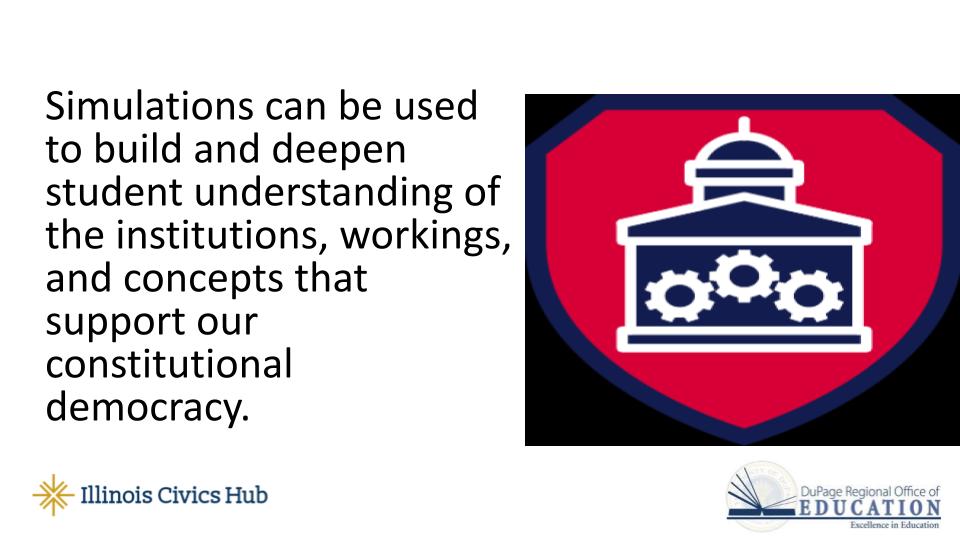The Rigor and Relevance of Simulations of Democratic Processes

As we embark on the 2022 Midterm Election Season, the proven practice of simulations of democratic processes is one tool classrooms can use to teach constitutional democracy as both content and practice. The Pedagogy Companion to the Educating for Democracy Roadmap explains:
Classroom-based practices of constitutional democracy is a pedagogical approach that centers the student in the instructional activity and cultivates the daily habits of a learner and citizen. Such repeated, even daily processes allow students to master the content and concepts of American constitutional democracy by regularly engaging in its practice. When done well, direct engagement encourages student-teacher contact, student collaboration, and active learning and reflection. As is the case with all other pedagogies, direct engagement works for early learners and mature students alike (12).
Both the Illinois middle and high school course requirements incorporate simulations of democratic processes as components of instruction. Last week, Dr. Jane Lo, assistant professor of teacher education at Michigan State University, joined the Illinois Civics Hub for a webinar on the Rigor and Relevance of Simulations of Democratic Processes. In the webinar, Dr. Lo shared her research on how students can put “Knowledge in Action” through simulations. Dr. Lo shared the components of highly effective simulations, how simulations can both teach and create demand for content, and when simulations should NOT be used in the classroom. If you missed the webinar, a recording is available on the Illinois Civics Hub Webinar Archive.
The Illinois Civics Hub has a number of resources and opportunities for educators to “sharpen their saws” when it comes to simulations of democratic processes:
- Our Simulations of Democratic Processes Toolkit for ready-to-go resources to plan, build background information, facilitate and debrief simulations in your classroom.
- The 2022 Kids Voting Illinois Mock Election is a safe way to engage your whole school in the midterm elections with a SOPPA compliant digital platform in the upcoming primary and general elections. Register your interest in participating in the Kids Voting Illinois Mock Election on this google form.
- Take our Guardians of Democracy Microcredential Course later this summer on Simulations of Democratic Processes. This FREE 5-week asynchronous will walk you through this proven practice of civic education in a community of practice. Course content includes research, how-to videos, step-by-step guides, resources, and sage advice from academic experts, like Dr. Lo, to address common concerns in facilitating simulations. You can register using this link.
